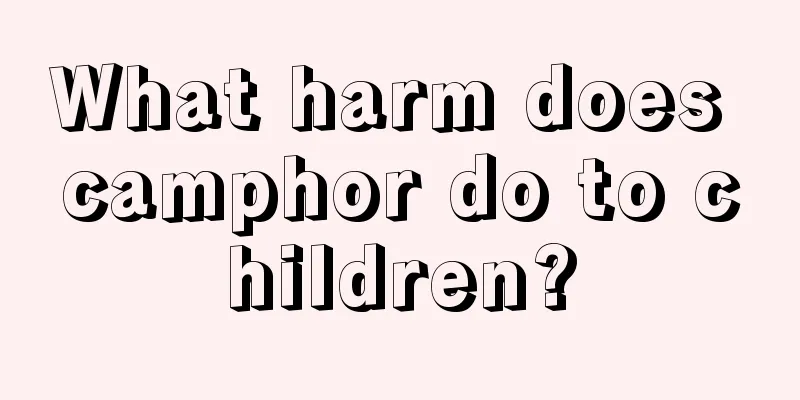Why does my child's nose hurt?

|
If a child has a sore nose, parents should pay attention. There are many reasons for a child's nose pain. Generally speaking, it may be related to rhinitis. Children are relatively young and their immunity is not yet fully developed, so they are prone to allergies. For example, bad air in daily life, animal hair, spring pollen, etc. may all lead to such symptoms. Let's take a look at this aspect. Why does my child's nose hurt? Considering that it is caused by rhinitis, you can do nose friction or nose massage every day: use your thumb to rub the nose wing up and down along the bridge of the nose several times, use your index finger to rotate and massage the "Yingxiang" point several times to enhance the blood circulation in the nose; eat more vegetables and fruits rich in vitamins to help the recovery of the nasal mucosal epithelium. In daily life, you can make some angelica sinensis tea, which can reduce inflammation, fight bacteria, clear away heat and detoxify, and effectively improve and prevent diseases. What are the symptoms of rhinitis in children? 1. Acute rhinitis in children It is usually caused by an acute infection, commonly known as "cold" or "flu". Children are prone to nasal congestion and increased nasal secretions. In the early stage, there is clear watery discharge, which gradually forms mucopurulent nasal discharge. Children also show low fever and general discomfort. 2. Chronic rhinitis in children It usually develops from acute rhinitis and is associated with secondary bacterial infection, incomplete treatment and recurrent attacks. 3. Allergic rhinitis in children If the disease occurs throughout the year, it is called perennial allergic rhinitis. If the disease only occurs during a season, it is called seasonal allergic rhinitis. When allergic rhinitis occurs, the nasal mucosa is generally pale and edematous, and a large amount of clear watery mucus is retained in the nose. 4. Atrophic rhinitis in children Nasal tissues such as the nasal mucosa, periosteum and nasal concha are atrophied, while the nasal cavity is relatively wide. The nasal mucosa loses its normal physiological function, and the child's nose becomes dry and ventilation is difficult. 5. Chronic hypertrophic rhinitis It often develops from chronic simple rhinitis. Long-term chronic inflammation and congestion cause hyperplasia of the nasal mucosa or nasal concha, thus forming chronic hypertrophic rhinitis. 6. Cheesy rhinitis in children This is a relatively rare nasal disease. Children with caseous rhinitis have accumulation of caseous matter in their noses, which has a strong foul odor and can easily erode the soft tissue and bone in the nose. Cheese often contains desquamated epithelium, necrotic tissue, purulent cells, cholesterol crystals and mold-like microorganisms. |
>>: Causes of cowardice and inferiority complex
Recommend
What kind of soup is nutritious for children?
Children usually need to eat something to nourish...
What is the reason for a newborn's pointed head?
In our lives, many babies' heads are not part...
What should I do if my child has allergies?
Baby's skin is very delicate, so it may often...
Trampoline headache
Parents often report that their babies have heada...
What's the best way to treat motion sickness in children?
There are more and more cars now, and children ha...
What's the matter with the red spot on the boy's diaper?
After the baby is born, some parents will let the...
How to care for allergic rash in children?
Children have fragile bodies, poor immunity, and ...
What should I do if my baby doesn’t want to eat? Nine mistakes your baby should avoid making when eating!
When babies don’t eat well, I believe many parent...
What is the baby's development standard at five months of pregnancy?
What are the development standards for a baby at ...
Feeding knowledge for babies aged 1-2 months
Pay attention to the baby's feeding after bir...
Symptoms of ADHD in Little Two
The symptoms of ADHD in children are quite obviou...
What does phimosis look like in children? I understand everything after reading it.
Many people don’t know what phimosis looks like i...
What causes high C-reactive protein in children?
As we all know, there are various elements in our...
What causes children to vomit and have a fever? The earlier you know, the earlier you can prevent it!
If a child has symptoms of vomiting and fever, it...
Can children with diarrhea eat boiled eggs?
When children have diarrhea, they are often accom...









